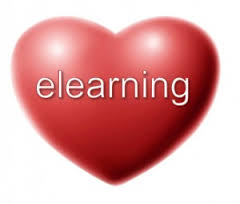 There’s a general understanding among audiobook publishers that most authors are not the best choice to record the audiobook version of their own writings. Notable exceptions exist, of course; celebrities and cross-over artists…but for the most part, publishers leave the narration to professionals.
There’s a general understanding among audiobook publishers that most authors are not the best choice to record the audiobook version of their own writings. Notable exceptions exist, of course; celebrities and cross-over artists…but for the most part, publishers leave the narration to professionals.
Naturally, we, as professional voice-over talent believe that rule of thumb applies to IVR, commercials, documentaries, explainer videos, gaming voices, and every other conceivable genre in our business.
Still, the DIY mentality exists in a budget-minded corporate world where cutting corners might seem more important than producing the highest quality.
A great example was the recent DevLearn conference in Las Vegas last week. The annual conference of the ELearning Guild organization brings together many of the top movers and shakers in the business of ELearning in one place at the same time.
A number of my voice-over friends were there. But me? Living in Las Vegas, you’d think it’d be a cinch… but this is where working another primary job gets in the way of meeting all the potential of a VO career. No. I did not attend. I did not pass out business cards to potential clients. I did not savor the trends in the industry. I did not get to attend the seminars, and hear the current wisdom from attendees on the use of professional voice-talent for their projects. 🙁
But having registered, I DID get a boatload of their informational materials, and one in particular caught my eye. Charles Jones, owner of LearningOnions.com apparently presented a talk on “Be Your Own eLearning Voiceover Artist”. Below is a synopsis of the presentation, followed by two links to the .pdf’s that accompanied his talk.
There’s nothing we can do about this…other than hope that most instructional designers don’t have the heart to author AND voice their own projects…and to continue to prove to our clients that we’re more than just a voice…that we’re partners and problem-solvers in their projects.
CourVO
___________
Be Your Own eLearning Voiceover Artist
DevLearn 2014 Conference & Expo – October 31, 2014

Charles Jones
Owner
LearningOnions.com
Your course looks fantastic, but how does it sound? Learning is most effective when it takes advantage of both audio and visual pathways into the brain. Adding quality voiceovers to your eLearning program can greatly enhance knowledge transfer. But hiring professional voiceover talent can be expensive, and subject-matter experts may not always be available. That leaves just one person: you!
In this interactive and engaging session, you will learn what to do once you receive an eLearning script. You will receive a small portion of a script on which to practice mark-up techniques. You will make minor modifications to the script to make it as natural as possible to read. You will also learn which words or phrases to emphasize to match the instructional content, and to clarify any issues with the SME or content provider. You will explore four simple audio editing techniques for reducing background noise, improving the quality of the narration, removing unwanted portions of the audio, and optimizing the audio for playback. Participants will also learn how to set up an inexpensive recording studio to further improve the quality of voiceovers.
In this session, you will learn:
- How to review, prepare, and modify a voiceover script to ensure narration quality while maintaining instructional integrity
- Techniques you can immediately use to sound your best during the recording phase
- Four easy steps to enhance the quality of your narration and remove unwanted sounds and noise with audio editing software
- How to optimize your audio for playback and make post-production changes
- How to create a very inexpensive recording studio
Audience:
Novice to advanced designers, developers, and project managers with an elementary knowledge of instructional design principles and the courseware development process.
Technology discussed in this session:
Adobe Audition or Audacity.

